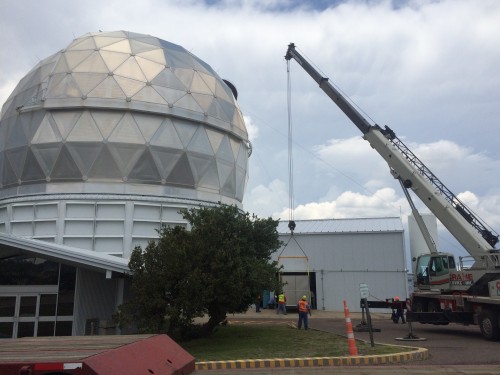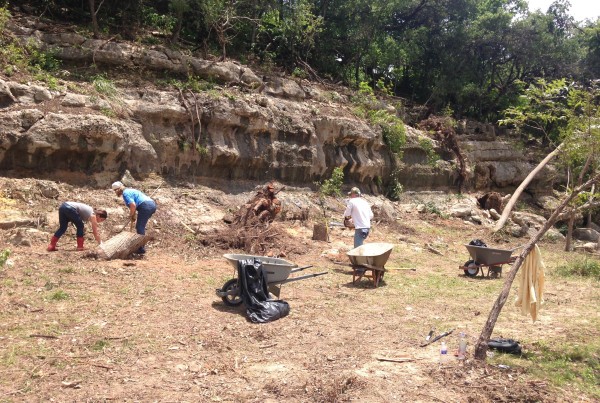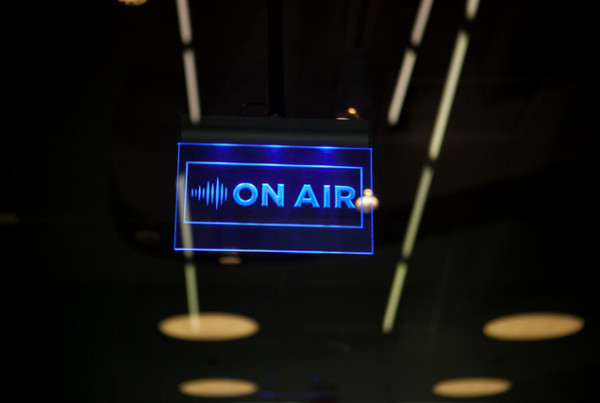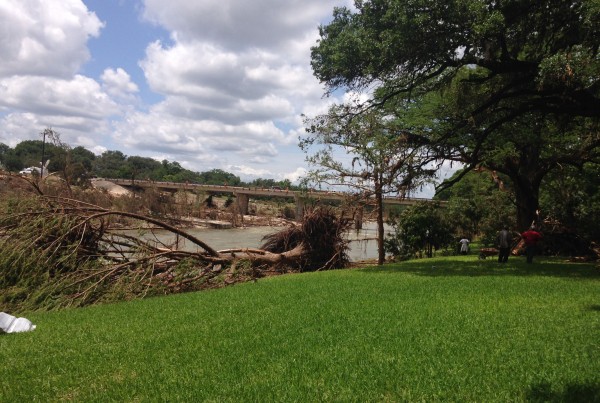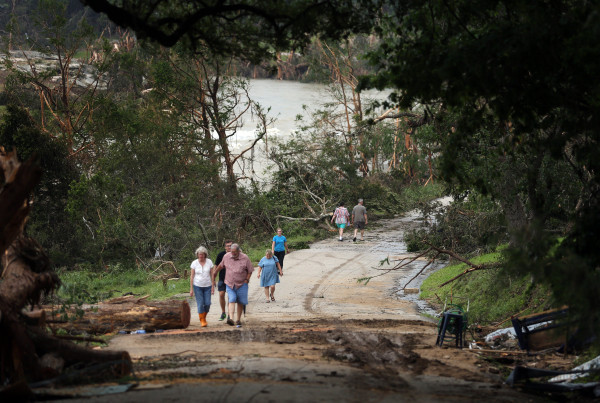This story originally appeared on Marfa Public Radio.
Almost seven years ago, teams of engineers and scientists began designing mirrors for a telescope to study the universe’s dark energy.
That’s the mysterious energy many scientists theorize the universe is largely made up of. No such mirrors had ever been created until now.
Last week, the mirrors arrived in West Texas at the University of Texas’ McDonald Observatory near Fort Davis, brought in by police escort.
The project started in December 2008. Hanshin Lee , John Good, and Herman Kriel of the McDonald Observatory have been working on the undertaking ever since, along with dozens of collaborators from UT Austin and the University of Arizona.
All three of them describe the project as a huge milestone in the observatory’s work.
“It is probably the most difficult optical system that humans ever made,” says Lee, the project’s head engineer.
It’s entirely new. The team had to create something that’s never been made to see something that’s never been seen – dark energy.
“Initially, we thought this is going to be challenging, however, we didn’t really know that this is going to be that challenging,” Lee says.
“We though it was going to take three years, but it took six and a half years.”
Lee and his team had to develop new polishing techniques to create the mirror’s a-spherical shape. And they had to design new methods to align the mirrors within tens of microns—fractions of a hair’s width.
“So this is a big deal,” he laughs, “because we contributed to pushing the boundary and increased our technological edge.”
The mirrors will be added to the Hobby-Eberly Telescope, one of the largest in the world, letting scientists see a broader swath of sky. And with the new mirrors, the telescope will have one of the most precise views of the cosmos.
So researchers will be able to see more sky with greater accuracy.
That is – if all goes well. The mirrors haven’t been installed yet. That’ll happen over the next two months.
But just getting the mirrors on site at the top of the Davis Mountains was overwhelming for some.
“It’s getting quite emotional,” Lee says, choking up a bit. “After six and a half years, you…”
…you cry, celebrate, and keep working.


